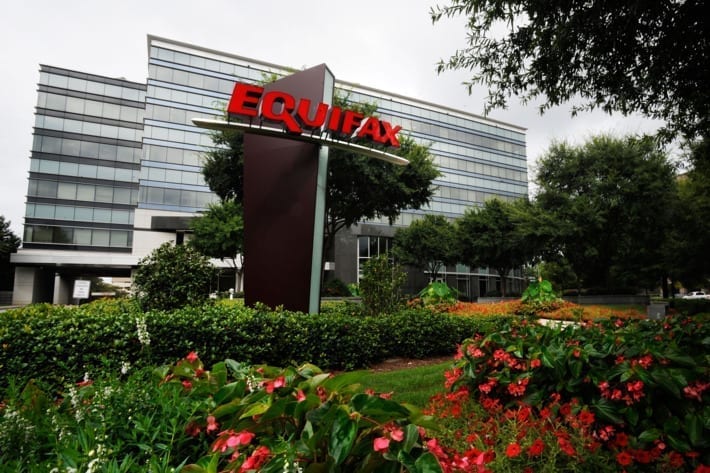Since the massive Equifax data breach that compromised sensitive personal information of 143 million Americans, more than 30 class action lawsuits have been filed against the credit reporting company. An estimated 25 of those lawsuits were filed as of Sunday in federal courts across the country, and at least one lawsuit is accusing Equifax of securities fraud. Even on Monday lawsuits against Equifax continued to pour in, and it’s expected that many of them will be “combined into a single, nationwide case.”
Since news broke of the massive Equifax data breach that compromised sensitive personal information of 143 million Americans, more than 30 class action lawsuits have been filed against the credit reporting company. An estimated 25 of those lawsuits were filed as of Sunday in federal courts across the country, and at least one lawsuit is accusing Equifax of securities fraud. Even on Monday lawsuits against Equifax continued to pour in, and it’s expected that many of them will be “combined into a single, nationwide case.”
For those who don’t know, reports from Equifax revealed that cyber criminals hacked into its system between May and July and “accessed sensitive information such as names, social security numbers, birth dates, addresses, and the numbers of some driver’s licenses.” The attack also compromised “credit card numbers for about 209,000 U.S. customers…as was personal identifying information on roughly 182,000 U.S. customers involved in credit report disputes.”
Unfortunately, the company didn’t detect the attack until July 29.
Back to the lawsuits, though, what exactly are consumers suing the company for? Well, some “criticized Equifax’s offer of a year of free credit monitoring with its TrustedID product,” while others, like the securities fraud lawsuit, is accusing the company of “misleading shareholders about its ability to protect consumer data, inflating its financial statements and share price before the truth became known.”

Wondering how to tell if you were a victim of the attack? Fear not. Shortly after informing the country of the breach, Equifax got busy alerting consumers “whose credit cards or dispute documents were affected.” The company also set up procedures “intended to help people protect their Social Security numbers and other identifying information” and intends to offer users “free identity theft protection and credit file monitoring services.”
Equifax, best known as “one of three nationwide credit-reporting companies that track and rates the financial history of U.S. consumers,” analyzes consumer data about “loans, loan payments and credit cards, as well as information on everything from child support payments, credit limits, missed rent and utility payments, addresses and employer history” to calculate credit scores. It collects consumer data from a variety of sources, such as “credit card companies, banks, retailers, and lenders who report on the credit activity of individuals to credit reporting agencies.”
Since the news of the data breach made headlines, Equifax’s share price has fallen “20.7 percent in the two trading days since the Sept. 7 disclosure of the breach, reducing Equifax’s market value by more than $3.5 billion.”
Sources:
Equifax TrustedID customers waive their rights to a class-action lawsuit
Giant Equifax data breach: 143 million people could be affected


Join the conversation!